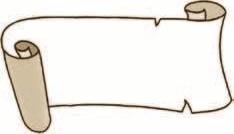
25 minute read
Lesson 1 Inventions and Discoveries
INVENTIONS AND DISCOVERIES
lISTENING
1 Read this quotation. Say what Simon Newcomb got wrong? Think of at least 3 reasons got wrong? Think of at least 3 reasons why fl ying is practical. why fl ying is practical.
Simon Newcomb (1835-1909)
118 2 a) Find the right ending from the box.
1 A person who designs buildings is called… 2 A person who designs engines and machines is called… 3 A person who has invented / designed something that hasn’t existed before is called… 4 4 A person who creates work of arts, A person who creates work of arts, paintings and drawings is called… paintings and drawings is called… an inventor. an artist. an architect. an engineer.
Lesson 1
b) Look at these names below and say who these people were.
What did they have in common?
zzThe brothers Wilbur and Orville Wright zzLeonardo da Vinci zzDaedalus and Icarus
c) Listen and fi nd the answers to the questions above.
3 Listen again and decide whether these sentences are true or false.
1 Daedalus and Icarus escaped by sea. 2 Daedalus crashed because he fl ew too close to the coast. 3 Leonardo’s fl ying machine had wings and pedals. 4 Leonardo launched his machine from Monte Ceceri in Italy. 5 Lilienthal studied the fl ying of birds. 6 The Wright brothers ran a small car factory.
119
4 a) Listen about Daedalus and his son again and fi nd the words which mean.
— a building in which you can spend years without fi nding your way out
I………….. — not easy c………….. — something you shouldn’t tell other people s………….. — candles are made of it w………….. — to die under water d…………..
b) Listen about Leonardo da Vinci and match.
c) Listen about the brothers
Wright and name all the parts of an aeroplane.
1 launch 2 in reverse 3 descriptions 4 pedals parts of a bicycle something that tells you what something is like backwards send into the sky
p………….., e………….., t………….., s………….. of w ………….., p…………..
5 Name those who said these sentences. Vocabulary box
1 “This horse is still too slow!” — ... 2 “Well done! 47 seconds longer!” — ... 3 “Why do we need wax?” — ... 4 “I’m really glad it has been published!” — ... 5 “Don’t go too close to the sun!” — ... 6 “I’m going to move the wings with pedals!” — ...
an inventor [ɪnˈventə] a reason [ˈriːzən] to exist [ɪɡˈzɪst] to launch [lɔːntʃ] impossible [ɪmˈpɒsəbl]
120
Lesson 1
6 Complete the following sentences.
1 Daedalus was an artist and inventor who ... 2 Icarus was Daedalus’s son who ... 3 Minos was the king who ... 4 Leonardo was an Italian artist who ... 5 Lilienthal was an inventor and writer who ... 6 The Wright Brothers were the Americans who ...
7 а) Do the quiz in pairs. Match events with years.
FIRSTS QUIZ
1 People fi rst fl ew 2 People fi rst ate hamburgers 3 The European fi rst wore glasses 4 People fi rst used mobile phones 5 People fi rst printed books 6 People fi rst watched TV 7 People fi rst travelled by train 8 People watched the fi rst movie 9 10 People fi rst went to a pizza restaurant People used the fi rst computer People used the fi rst computer in 1941. in 1905. in 1903. in 1889. in 1895. in 1825. in 1935. in 1448. in 1984. in 1310.
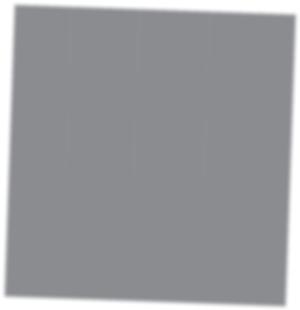
b) Listen and check.
121
c) Choose the words you don’t know.
Ask your friend or teacher what they mean.
d) Read the stories and insert the past simple of the verbs from the box.
fl at, topping, a hot-air balloon, to fl ip, a coin, to weigh
make, wait, buy, eat, open, use, fl ip, fl y


THE FIRST
PIZZA RESTAURANT
Ancient Greeks … a fl at bread with many toppings. The very fi rst pizza restaurant was the Antica Pizzeria in Alba, Italy. It … its doors in 1830 and is still in business today. in business today.
THE FIRST COMPUTER
In 1941 Sir Harold Thomas Flower created the fi rst electronic computer. It was enormous and it fi lled the whole room. The British secret service … it for breaking German secret radio messages.
122

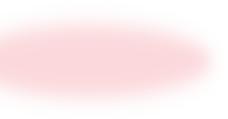
Lesson 1
THE FIRST MOBILE PHONE
Motorola, we call it “the Brick” Motorola, we call it “the Brick” today, was the fi rst mobile phone. today, was the fi rst mobile phone. It weighed 1 kilo. People … for hours to buy it. They … it for 4 000 US dollars.
THE FIRST FLIGHT
People made the fi rst kites in 400 B.C. Leonardo da Vinci … many drawings of helicopters. In 1783 the French Montgolfi er brothers fi rst fl ew in a hot-air balloon. On 14th December 1903 the Wright brothers from America were ready to fl y a plane. Who would be the fi rst?
They … a coin and
Wilbur won. But, he crashed to the ground. The following day it was
Orville’s turn. He … for 12 seconds, at 120 feet (37 metres).
8 Work in pairs to answer the questions.
1 How was the fi rst computer different from a laptop? 2 How heavy is your mobile phone? 3 Do you like pizza? Is it healthy food? 4 Was the fi rst fl ight long? 5 Did any of the facts surprise you?
9 Work in groups to discuss the following questions.
zzWhy are these fi rsts important? zzHow did they change people’s lives? zzWhich three do you think are the most important?
123
vocabulary
1 Match the sciences with their definitions.
2 Look at the definitions of sciences in Task 1 and say what each of the scientists studies.
chemistry biology physics botany geology a science about the earth, including the origin and history of rocks b science about the structure of substances1 and how they react when they are combined2 c science about plants and their structure d science about the life of plants and animals e science about matter and energy such as heat, light, sound, etc.
NOTE
A chemist is also a person who prepares and sells medicines and sometimes cosmetics. This person is also called a pharmacist. A physicist is not the same as a physician. A physician is another word for a doctor.
a subject or studies a person who is an expert in the studies
science biology chemistry physics botany geology psychology linguistics physiology history politics mathematics music
L K
scientist biologist chemist physicist botanist geologist psychologist linguist physiologist historian politician mathematician musician
124
1a substance [9sybst3ns] — речовина 2to combine [kem9bain] — об’єднувати(ся); сполучати
Lesson 1
3 a) Tell about what scientists these people were.
b) Start the sentences with the words from the box.
Charles Darwin was a… Isaac Newton was a… Dmitry Mendeleyev was a… Nicola Copernic was an… Ivan Pavlov was a… Michael Faraday was a…
Dmitry Mendeleyev Michael Faraday
Nicola Copernic
Ivan Pavlov Charles Darwin
Isaac Newton

biology, astronomy, meteorology, linguistics, psychology
1 … is the study of the way in which language works. 2 … is the science of the stars. It deals with the Earth, the Moon, the Sun and other planets. 3 … is the science of mental life which studies human and animal behaviour. 4 … deals with the scientifi c observation and study of the phenomena of weather and climate. 5 … is the science of life. It deals with a great diversity of life forms.
125
4 Say what subjects belong to the branches of science from the grid.
natural sciences physical sciences
social sciences humanities
...
WorD buIlDING Noun
physics science
Noun
physicist scientist
Verb
to sleep to help to create to pollute to invent to train to recycle to believe to live to discover to develop
Noun
sleep help creation pollution invention training recycling belief life discovery development
Noun
atom volcano danger fame person origin power peace
Adjective
usual popular
Adjective
atomic volcanic dangerous famous personal original powerful peaceful
Adjective unusual unpopular
5 Look at the ‘Word
Building’ table and say what suffi xes and prefi xes are used to change one part of speech to the other. Explain the meanings of made up words using the origins.
Vocabulary box
an invention [in9venSn] a theory [98i3rI] to construct [k3n9strykt] to discover [dis9kyv3] to invent [in9vent]
Example: A physicist is a person who deals with physics.
126
Lesson 1
6 Look at the word map and try to add some words according to the word groups.
EXPERIMENTS INVENTIONS
rocket hovercraft

DISCOVERIES computer telephone ...
SUBjECTS
solar system theory of evolution ... chemistry physics ...
7 Speak of the natural sciences you study at school.
zzWhat does each of them study? zzWhich one is your favourite? zzWhich one don’t you like?
Vocabulary box
an explorer [ik9splc:r3] exploration [0ekspl39reiSn] an observer [3b9xE:v3] observation [0Abx39veiSn] to explore [ik9splc:] to observe [3b9xE:v] z to succeed [sCk9sI:d] in
127
rEaDING & GraMMar
1 a) Read about Serhiy Korolyov and complete the text with the words from the box.
rocket, tested, engineering, scientist, developing, industry, graduated, space, founders, research
Academician Serhiy Pavlovych Korolyov, the famous (1)… and designer of spacerocket systems, was born in the city of Zhytomyr in the family of a teacher. From 1927 he worked in the aircraft (2)… . In 1930, without leaving his job, he (3)… from Moscow Bauman Higher Technical School and fi nished a fl ying school in Zhytomyr in the same year.
After a meeting with Tsiolkovsky and studying his ideas, Korolyov became a (4)… enthusiast. He was one of the (5)… of modern space-rocket engineering1 .
In 1933, when the Group for Studying Jet Propulsion2 was organised, and the fi rst experimental rockets were made and (6)…, Korolyov took part in its work. Afterwards Korolyov devoted
1engineering [0endzi9ni3riN] — машинобудування; інженерна майстерність 2Jet Propulsion [pr39pylSn] — реактивний рух
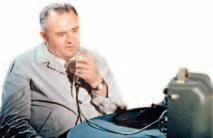
128
Lesson 1
himself to (7)… space-rocket engineering. In 1957 the fi rst Earth satellites in the world were put into orbit with the help of the systems he had designed1 and the far side of the Moon was photographed. He controlled the spaceships, in which man fi rst fl ew into (8)… and from which he walked out into space. Korolyov trained many scientists and engineers who are now leading the work in (9)… institutes and designing offi ce buildings which specialise in the sphere of space-rocket (10)… .
b) Work in pairs to answer the questions.
1 Who is Serhiy Pavlovych Korolyov? 2 When did Korolyov graduate from Moscow Bauman Higher Technical School? 3 What connection with aviation did Korolyov have before he became interested in cosmonautics [0kAxm39nc:tiks]? 4 What was the result of Korolyov’s meeting with Tsiolkovsky? 5 What was done in space research under Korolyov’s control?
1to design [di9xain] — (тут) проектувати, конструювати
129
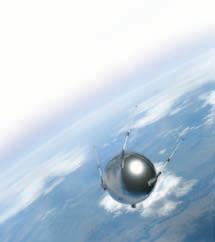
remember!
PRESENT PASSIVE
Додаток речення активного стану стає підметом у реченні пасивного стану. У реченні пасивного стану повідомляємо про те, що відбувається із підметом. Порівняйте: Hundreds of tourists visit
the Science Museum
every day. (Active Voice)
The Science Museum is
visited by hundreds of tourists every day. (Passive Voice)
2 Complete the following sentences with the right form of the present simple passive (positive or negative) of the verbs in the box.
keep, do, fi nd, organize, consider, invite, use
1 Steam locomotives were used in the past, but they … today. 2 A lot of experiments … in Chemistry classes. 3 Science subjects … to be diffi cult to understand by many students. 4 Old and precious things … and looked after in a museum. 5 ‘Science Night’ … for children and their parents when they … to spend an evening doing fun science-based activities and then spend the night in the museum among the exhibits. 6 Some amazing inventions and discoveries … at the Science
Museum.
3 a) Do the quiz and fi nd out how much you know about inventions and inventors.
1 The theory of relativity was developed by a) Isaac Newton. b) Albert Einstein. 2 The fi rst step on the Moon was taken by a) Neil Armstrong. b) Yuri Gagarin. 3 The fi rst bicycle was built in a) 1839. b) 1920.
130
Lesson 1
4 The radioactive elements radium and polonium were discovered by a) Marie Curie. b) William Rontgen. 5 Television was invented in a) 1930. b) 1926. 6 The steam engine was constructed by a) James Watt. b) George Stephenson. 7 Hot baths and central heating were first used by a) the Greeks. b) the Romans. 8 The first rocket was launched by a) Robert Goddard in 1926. b) Enrico Fermi in 1932.
b) Find all the examples of the past passive in the quiz. c) Read and say what you know about past passive forms.
4 Make right sentences. remember!
PAST PASSIVE was/were + the past participle
The theory of relativity was developed by Albert Einstein. Radium and polonium were discovered by Marie Curie.
The first computer The first telescope The first skyscrapers Some laws on volume The thermometer The first bridge Anaesthetics was were developed made built discovered invented constructed used in 1848 in Britain. in 1608 in Holland. in 1884 in Chicago. by Archimedes. in 1714. in the city of
Babylon in 2200 BC. in surgery for the first time in 1847.
131
L K
to invent
to create something new
Nobody knows who invented the wheel.
Lesson 1
to discover
to fi nd, see or learn of something no one knew before Galileo discovered the planet Jupiter [9dzu:pit3].
THE SCIENCE MUSEUM — NOT JUST ANOTHER MUSEUM!
For example, there’s a light aeroplane which is fastened to the fl oor, so you can climb into the pilot’s cabin and see how the tail moves when you move the controls. And for those who think that science is complicated, at the Science Museum you can do experiments, solve scientifi c problems, and see how it all makes sense. Science and
Apollo space capsule
nature documentaries are shown in the IMAX 3D Cinema, some of them in 3-D. No wonder this awesome place is often compared to a theme park about science, which is why it is visited by hundreds of tourists every day, and is especially enjoyed by young people. L K
THECHNOLOGY
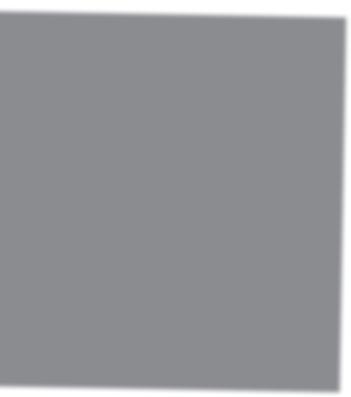
технологія
People have a special technology to do this. Our laboratory uses the very latest technology.
техніка
science and technology; agricultural technology; a high level of technology
133
6 Match the words with their defi nitions.
1 remarkable 2 to fasten 3 humanity 4 an achievement 5 an exhibit 6 a theme park human beings in general something important or successful that you have done something that is shown, especially in a museum amazing, worth remembering an amusement park based on a single subject to make something fi xed
7 Read and name some important inventions and discoveries of the 20th and 21st century.
the television set, the personal computer, the fridge, DNA, the washing machine, the heart transplant, the atomic bomb, the automobile, the personal stereo, the mobile phone

a) Work in pairs to answer the following questions.
zzIn what way have inventions changed our lives? zzWhich ones have had the greatest impact on most people around the world? zzWhich ones would be the most diffi cult to live without? zzWhich one is the most important for you personally? zzAre there any inventions that are harmful? zzAre there any inventions or discoveries that you would add to this list?

134
Lesson 1
b) Complete the texts (1-4) with the names of the corresponding inventions and discoveries from Task (a).
1 The structure of _________ was deciphered in 1953, by Francis Crick and James Watson. In 1992, the fi rst map of the human genome was produced in France, which would help scientists to treat some diseases that we inherit from our parents and grandparents. 2 _________ was invented by a Scottish inventor John Logie Baird in 1926, and it was fi rst demonstrated in Selfridges, a department store in London. It was built of old cans, bicycle parts, lenses, string and sealing wax. 3 The fi rst _________ that was made for individual use was called Apple II, and it was , and it was launched in 1977 by Apple Computers. It was . It was sealed in a plastic case: it had a keyboard, a sealed in a plastic case: it had a keyboard, a video unit and removable fl oppy discs. It was sold for € 3800 in today’s money. 4 The world’s fi rst practical four-wheeled _________ that was powered by a gasoline engine was designed and built in 1885 by Karl Benz. But the fi rst cars were mass-produced by Henry Ford, after he introduced his Model T in 1910, which was the fi rst affordable fi rst affordable car. car.
Vocabulary box an achievement
[əˈtʃiːvmənt] cell [sel] humanity [hjuːˈmænɪti] affordable [əˈfɔːdəbl] awesome [ˈɔːsəm] harmful [ˈhɑːmfəl] remote [rɪˈməʊt]
135
8 Say if the following sentences are true or false.
1 The structure of DNA was discovered in 1992. 2 The television set was fi rst shown in a bookshop. 3 The fi rst personal computer was launched by Microsoft. 4 The fi rst affordable cars were produced in the USA.
9 Complete the following sentences with the past simple passive of the verbs in brackets.
1 The fi rst TV remote controls … (use) in the 1950s in the USA. One of the early models … (develop) in 1952, and it … (call) ‘Lazy Bones’. 2 In 1996 a sheep called ‘Dolly’ … (clone) by British scientists from a single cell that … (take) from a six-year-old female sheep. 3 Clothes … (hand-wash) by rubbing the clothing with rocks in a river, or by using a wash board before the invention of the washing machine. 4 The fi rst affordable cars … (produce) by Henry Ford. 5 Text messages … (use) in Asia and Europe before they became popular in the USA in the mid 2000s. 6 The Internet began in 1969 as The Arpanet data network, which … (establish) by the US Department of Defense and … (suppose) to link computer networks at several universities and research laboratories in the United States.
SPEaKING
1 a) Match the pictures of the inventions of recent years with their names (1-6).
1 a play station 2 a digital camera 3 a mountain bike 4 roller skates 5 mp3 player 6 a mobile phone
136


Lesson 1
b) Answer the questions.
2 Match the beginnings with the endings to make correct sentences.
Which inventions are fun? Which ones are fashionable? Do all of them appeal only to young people? Which of them is the best invention in recent years? Why?
1 When you listen to your
MP3, surf the Internet or use your mobile phone, 2 If you have a pastime of your own choice, 3 Any hobby will change your teen’s life 4 The lives of most teenagers depend on 5 No matter what kind of hobby it is, 6 If you learn English, you can try to create posters of your country for English speaking tourists. you can “unplug” and focus on sports and opportunities in real life. for the better. electricity and batteries. you are plugged in. it gives you a sense of purpose in life.
137
3 Split up in two groups. Listen to four descriptions of various objects. The group which is the fi rst to guess what is being described wins.
4 a) Guess the objects mentioned below.
1 ........................ 2 ........................ 3 ........................ 4 ........................
Vocabulary box
purpose [ˈpɜːpəs] riddle [ˈrɪdl] to depend [dɪˈpend] (on) recent [ˈriːsnt]
1 I was born in the late fi fties. I’m getting more and more popular every year. I’m plugged in approximately every other day. I’m the most important item in most people’s lives. Nowadays you can put me in a small pocket. I hear all your secrets.
I was born about 150 years ago. I don’t run on batteries. I don’t run on electricity. I am unplugged, independent and free. I can take you anywhere. In some cities I have special tracks.
A m _ _ _ _ _ p_ _ _ _
2
A b _ _ e
b) Make your own riddle for the class to guess.
Use any noun from this unit. Write in the fi rst person singular.
I am usually... You can see me in... I don’t…
138

Lesson 1
5 a) Work in pairs following the tasks in items a) and b).
Task for pupil A. Read the fi rst letter and then answer your partner’s questions. Task for pupil B. Read the second letter (page 142) and then answer your partner’s questions.
A
Dear ‘English Bridge’,
I’d like to tell about the invention of telephone. It was invented by Alexander Bell in 1875. Alexander Bell was born in Edinburgh, Scotland. When his family went to America, he was given a teaching position with deaf 1 people and he became interested in speech. His work was fi nanced by the father of one of his pupils. The story goes that Bell invented the telephone by accident. At that time he was experimenting with the telegraph. He spilled some acid 2 and called his assistant. “Come here, Mr Watson, I want to see you.” Watson was in the other room and he heard Bell through apparatus 3. The fi rst telephone exchange which connected 21 people happened in 1878. The fi rst communication satellite was launched in 1962.
With best regards,
Peter
1deaf — глухий 2an acid [92sid] — кислота 3an apparatus [02pe9reit3s] — апарат, прилад
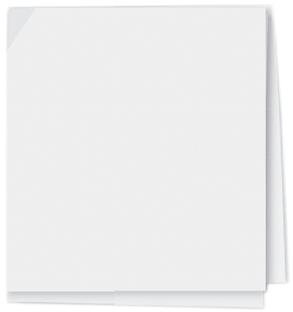
139
B
Hi, everybody!
I think that one of the most important inventions for the mankind1 is the first accurate clock which was designed by Christian Huygens in 1657. Christian Huygens was born in the Hague, Holland.
Mechanical clocks were made in the 14th century but they were too inaccurate to have minute hands2 .
Shadow clocks3 or sundials are the oldest instruments for telling the time. They were developed more than 4,000 years ago. Water clocks were used in ancient Egypt. Time was measured4 by how long it took water to flow out of holes in a container. Sand clocks were used in the Middle Ages. If they took an were used in the Middle Ages. If they took an hour to empty they were called hourglasses5 . hour to empty they were called hourglasses Today they are still often used as kitchen Today they are still often used as kitchen egg-timers6 .egg-timers Pocket watches were invented in about 1500 and wristwatches started to get popular 1500 and wristwatches started to get popular around 1900 when they were made mainly around 1900 when they were made mainly in France and Switzerland. in France and Switzerland. With my best wishes, With my best wishes, Julia Julia
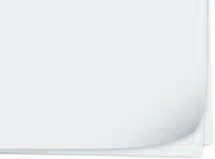

140
1mankind [0m2n9kaind] — людство 2a hand [h2nd] — (тут) стрілка годинника 3a shadow clock [9S2deU] — сонячний годинник 4to measure [9mez3] — вимірювати 5an hourglass [9aU3gl4:s] — пісковий годинник 6an egg-timer [9eg0taim3] — годинник для варки яєць
Lesson 1
b) Pupil A, ask pupil B about
the invention of the clock and after your partner’s answer circle the right option.
1 When was the first accurate clock designed? a) in 1657 b) in 1637 c) in 1700 2 When were shadow clocks first used? a) 3000 years ago b) 4000 years ago c) 2000 year ago 3 When were mechanical clocks made? a) in the 13th century b) in the 15th century c) in the 14th century 4 What kind of clocks were used in ancient Egypt? a) hourglasses b) water clocks 5 When were sand glasses used? a) in the Middle Ages b) after 1700 6 Where were the first wristwatches made? a) in England and Germany b) in France and Switzerland
Pupil B, ask pupil A about the invention of the telephone and
after your partner’s answer circle the right option.
1 When was the telephone invented? a) in 1895 b) in 1901 c) in 1875 2 Where was Alexander Bell born? 3 What kind of job was Alexander Bell given when he got to America? a) a teaching position with blind people b) a teaching position with deaf people 4 Who was his work financed by? a) his father b) his best friend c) his pupil’s father 5 What were the first words spoken over the telephone? a) “Hello, Bell speaking. Can I speak to Mr Watson, please?” b) “Come here, Mr Watson, I want to see you.” 6 When was the first communication satellite launched? a) in 1962 b) in 1958 c) in 1968
141
6 a) Listen about three scientists. Mark each sentence with ‘T’ if the statement is true, and with ‘F’ if it is false.
Albert Einstein Isaac Newton Galileo Galilei
1 Galileo Galilei made his fi rst scientifi c discovery at the age of 19. 2 He became Professor of Mathematics at the university when he was 60. 3 As a boy Isaac Newton built a model of a telescope. 4 The sails of the model could turn only when there was a wind. 5 Albert Einstein was very hard-working and attentive at the lessons in school. 6 Einstein is a founder of ‘The Theory of Relativity’.
b) Speak about the life of a scientist who interests you very much. You may use the words:
to put a theory [98i3rI] into practice to do the research [ri9sE:tS] work successful [sek9sesf3l] to get interested in to graduate from to study to experiment to publish
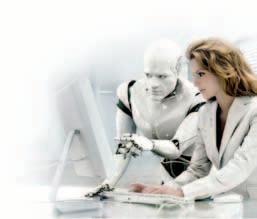
142
Lesson 1
7 Do a science survey.
In groups, ask each other the questions below.
Write down the answers. Report the results in class.
zzDo you like science lessons? zzWhich is your favourite scientifi c subject: biology, chemistry or physics? zzAre you good at Maths? zzWould you like to do more science experiments in school? zzHave you ever used a computer? zzHave you ever bought a science book or magazine?
8 Work in small groups. Discuss the predictions about the future.
a People will use their TVs to control their lives. For example, you will be able to do your shopping, use your bank account and control the lights and heating in the house through the TV. b Robots will do all the boring jobs. c People will have fewer diseases and health problems.
zzDo you think it will happen? Why/why not? zzWill it be a good thing or not?

9 a) Comment on the statements
and say what moves a man to discover the world. “Scientifi c work must have no object except to fi nd out the truth.” the truth.” “Great explorers went overseas because they were curious people.” “If you never thought of asking a question, you are not interested in having the answer.”
143
b) Work in pairs. Make a list of examples to show that you are able to apply the knowledge and skills you got at school in different situations.
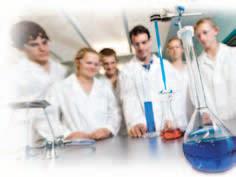
What qualities do you think are needed to succeed in a scientifi c research? Do you think you will be able to carry out a scientifi c research? If you chose a scientifi c career, what would you like to become and why?
Vocabulary box
disease [dɪˈziːz] to apply [əˈplaɪ] curious [ˈkjʊərɪəs] overseas [ˌəʊvəˈsiːz] mainly [ˈmeɪnli]
10 a) Read and fi nd out the main idea of the extract from the poem.

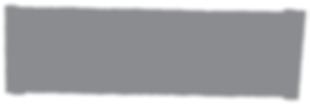
144
T�� w��l� i� so ���� � a ����e� � ���ng�, I’� ���� �� �h��l� ��� �� a� hap�� a� ��ng�. �r�� ‘Hap�� Th�u�h�’ �� R���� L��i� S�e�ens��
Lesson 1
b) Read and discuss in small groups.
zzWhen you think of discoveries, what ideas come to your mind? zzEverywhere you look, there are discoveries to be made. Each day we learn a little more about the world around us. What discoveries of your own have you made?
WrITING
1 Search for the information about life and work of any famous scientist / inventor you like. Make a biography chart.
MARIA SKLODOWSKA-CURIE (1867–1934) 1867 — born in Warsaw, Poland 1891 — started studies at Sorbonne University in Paris 1895 — married Pierre Curie 1898 — discovered polonium1 1903 — won the Nobel Prize in physics for the discovery of radioactivity 1906 — became the fi rst woman-professor 1911 — won the Nobel Prize in chemistry for her studies on radium2 1934 — died of leukemia3
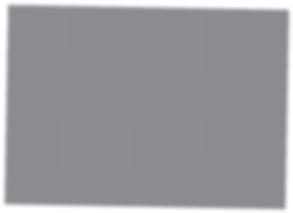
2 a) Write about any invention or discovery you like. b) Prepare to present your story in class with pictures to illustrate the things and ideas you are going to mention about.
1polonium [p39l3UnI3m] — полоній 2radium [9reidj3m] — радій 3leukemia [lu:9kI:mI3] — лейкемія








